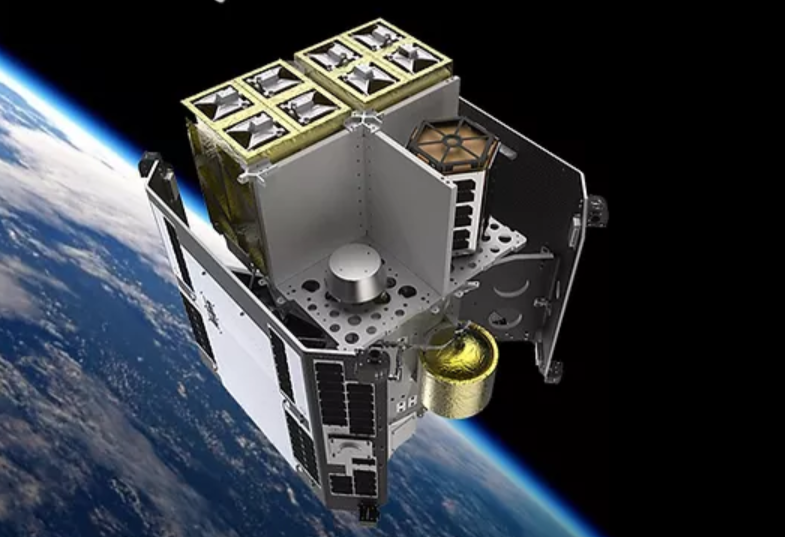
As it awaits its seventh mission via a Falcon 9 launch imminently, Ion Satellite Carrier provider D-Orbit–which is going public via a special purpose acquisition company (SPAC)–expects to have 20 space tugs operational by 2023, a top executive says.
Renato Panesi, co-founder and chief commercial officer of D-Orbit, told a Canaccord Genuity space investor conference webinar on March 30 that his 11-year-old Italian startup should be well positioned to help other space customers save substantial money.
Ion purportedly can host some number of smaller satellites—up to 200 kg (440 lb.) total payload, or 64 cubesats—and deploy them with a low tumbling rate in their precise operational orbit. The taxi service can cut satellite deployment time for customers by up to 85% and the capital expenditure required to deploy a constellation by up to 40%, D-Orbit says. Ultimate low Earth orbit small-satellite deployment times can be slashed to less than one month from about 11 months, according to the company.
The company’s assertions are backed by having delivered more than 70 customer satellites to their desired orbits to date. Customers include Lockheed Martin, AAC Clyde Space and Aistech Space, D-Orbit says.
“In the end, it’s a launch cost reduction, lower manufacturing costs, because satellites do not need to have propulsion on board—we take care of that—nd also, the pace of manufacturing and replacing satellites is lower,” Panesi said. Services also will include end-of-life LEO satellite disposal and possibly debris removal.
The company counts 200 employees and growing, starting in Italy, and also a business development office in the UK and a software development office in Portugal. Panesi’s background includes management experience in Leonardo’s research projects.
In its Lake Como, Italy, manufacturing center, D-Orbit can make up to 12 Ions now. D-Orbit sees six launches of Ion this year, including the latest and a previous one in January. The next scheduled launch would be in June. Launch cadence is supposed to increase to 13 launches in 2023.
D-Orbit aims to make Ion compatible with all rockets capable of lofting 300 kg or more, Panesi said. “We need as many as possible,” he said of launch partners. SpaceX and ArianeSpace are partners already.
D-Orbit unveiled a go-public effort on Jan. 27 to start trading on the Nasdaq stock exchange in a deal that should provide it up to $185 million. The reverse-merger with Breeze Holdings, the SPAC, should close by September.
Its backlog of work was at least €22.75 million ($25.2 million) at the time of the SPAC announcement.
